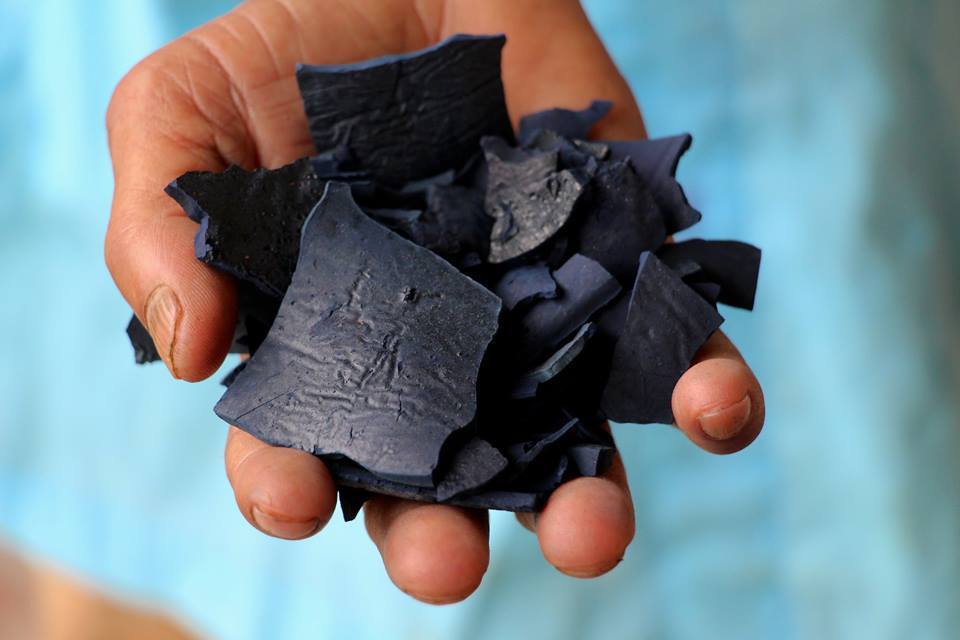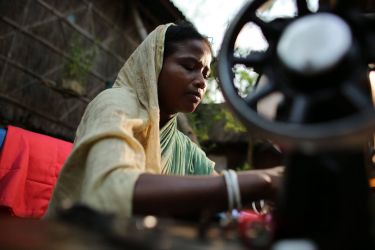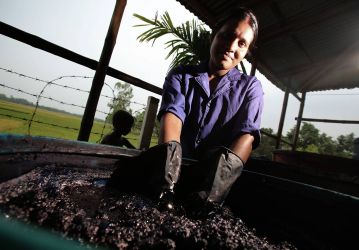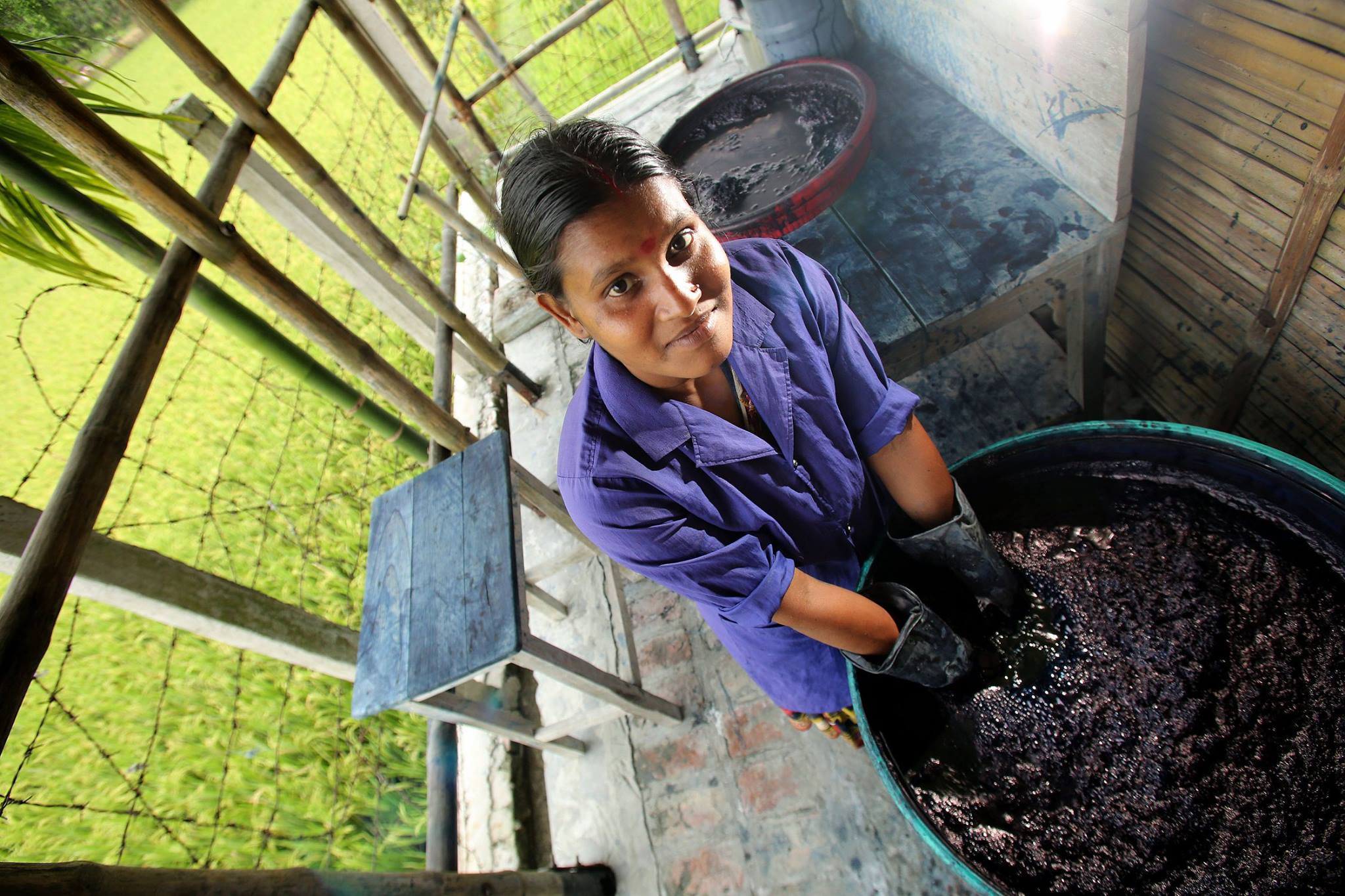Bangladesh: Project Visits
Living Blue: Indigo is Changing the Lives of Farmers and Artisans.
The brand LIVING BLUE represents high quality, hand-made indigo textile products meant for high-end markets, made by artisans in Bangladesh. It is about fair trade where the artisans not only get a fair wage and democratically manage and run their own businesses, but also have total control over profits. The surplus profits generated by this social enterprise contribute to the general well-being of local communities and help create sustainable social, cultural and economic life. Living Blue represents more than 240 artisans and 2,700 farmers within the rural and marginalized communities of north Bengal. The primary purpose of Living Blue is to promote traditional crafts and natural dye cultivation through: community driven employment, social and business innovation, socio-economic development and the global promotion of its products and services.

The Living Blue enterprise embraces the value of this renewable resource in the existing micro-ecology and capitalizes on the ever-growing demand for natural dyes that contributes to more environmentally conscientious production systems, as well as sustainable local communities. All of the indigo, known as ‘true indigo’ when grown in northern Bengal, is used for dyeing purposes in this textile collection and is of the highest quality.



The benefits of growing, extracting, dyeing and trading the indigo dye directly accrue to the stakeholders of this enterprise. The indigo initiative has already created numerous jobs — plant harvesters, indigo dye extractors and manufacturers, dyers, and artisans. Each of these activities adds value to the product as the producer groups are cross-connect specialties to create a foundation for small enterprises, textile-related manufacturing and regional economic development. The producers have set up an umbrella organization – Nijera Cottage and Village Industries (NCVI), overseen by a democratically elected Board of Directors. The model by which the NCVI is managed is based on recognizing labor power as the capital, which is the only asset available to the poor and offsets the lack of monetary capital.
Within these social enterprises, the monetary benefits go to savings, insurance, medical expenses, employment creation, education, homestead repairs and repaying debts, ultimately empowering the farmers and artisans to exit the cycle of poverty. NCVI is an attempt to build a social economy where citizens can be directly involved in regional economic development, where the village is not just a residential space, but an economic hub with specialty skills that has the potential to grow. Many members of the general council and the Board of Directors are leaders who have emerged through various social and political initiatives, under CARE Bangladesh’s Social Development Unit and the project Nijeder Jonya Nijera (We, For Ourselves). They have triggered and led community activities that have been instrumental in visible social change. Through the spirit of collective actions that address the many forms of discrimination (cultural and economic), exploitation (by middlemen and moneylenders), and exclusion (by powerful actors), these individuals have transformed social and power dynamics in their respective localities.
NCVI addresses the lack of economic opportunities – under-employment and landlessness – in this socially and culturally rich, yet economically ‘backward’ region of Bangladesh. Amazingly these farmers and artisans – the pioneers – include women and men, socially and economically most marginalized, who have time and again shown their abilities to overcome and take on the challenges that hold them behind. They continually demonstrate ingenuity and a willingness to learn, teach and manage enormous risks working hard to survive. The Nijera Cottage and Village Industries is a manifestation of this spirit and the products represented by the Living Blue label are its testimony.